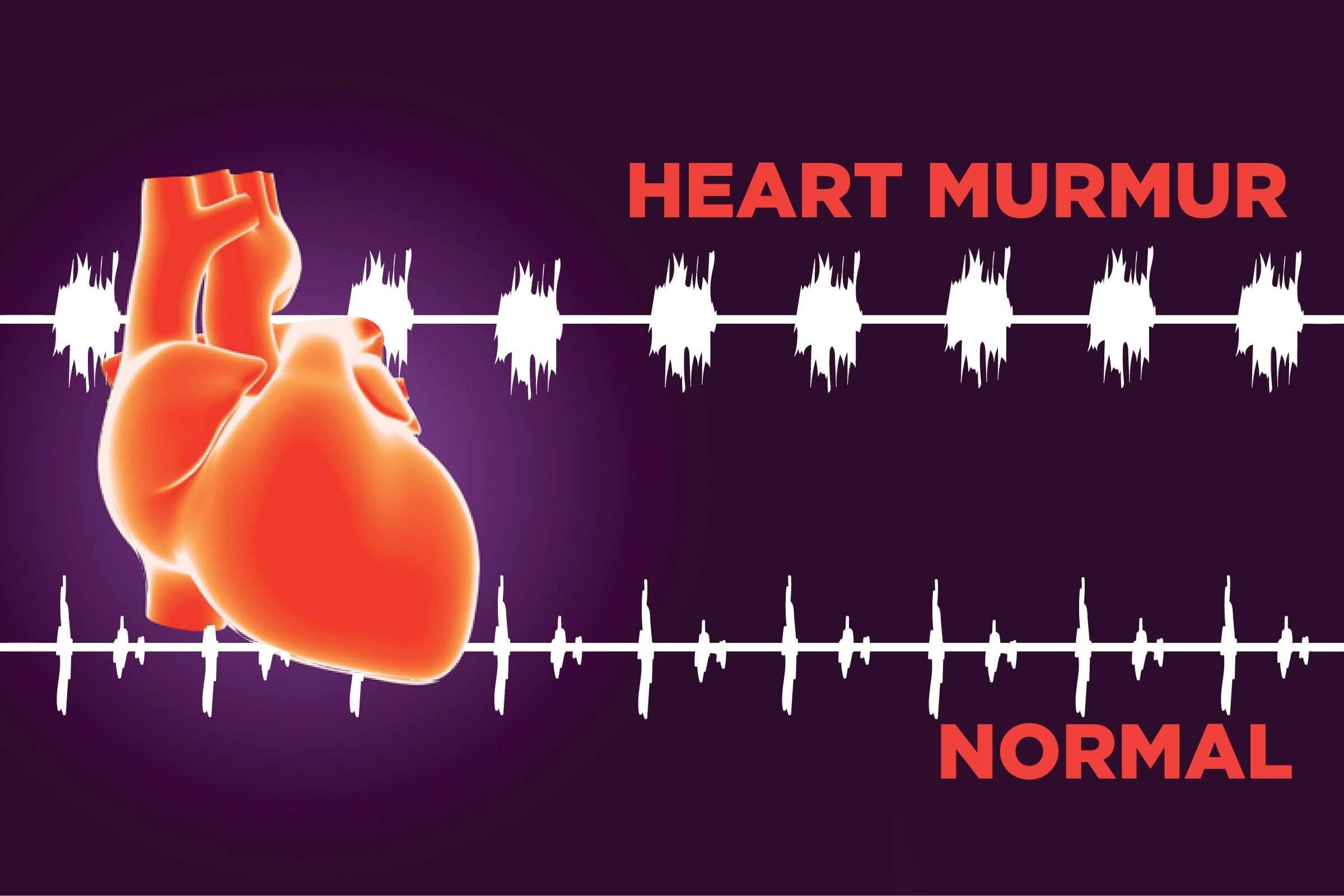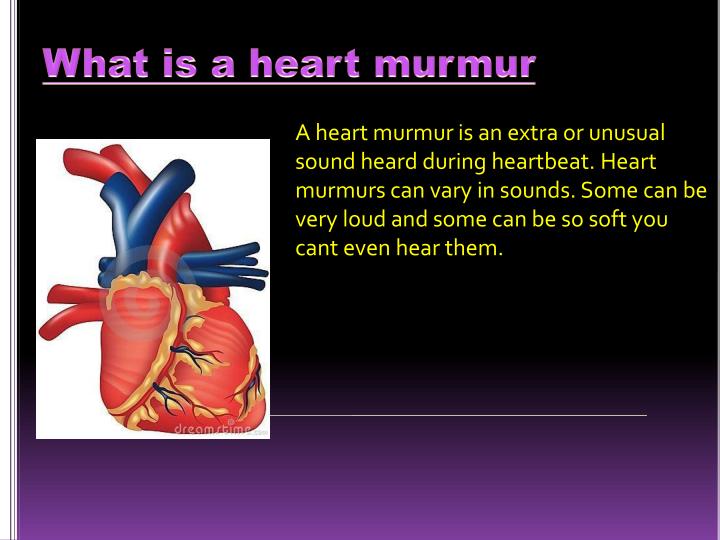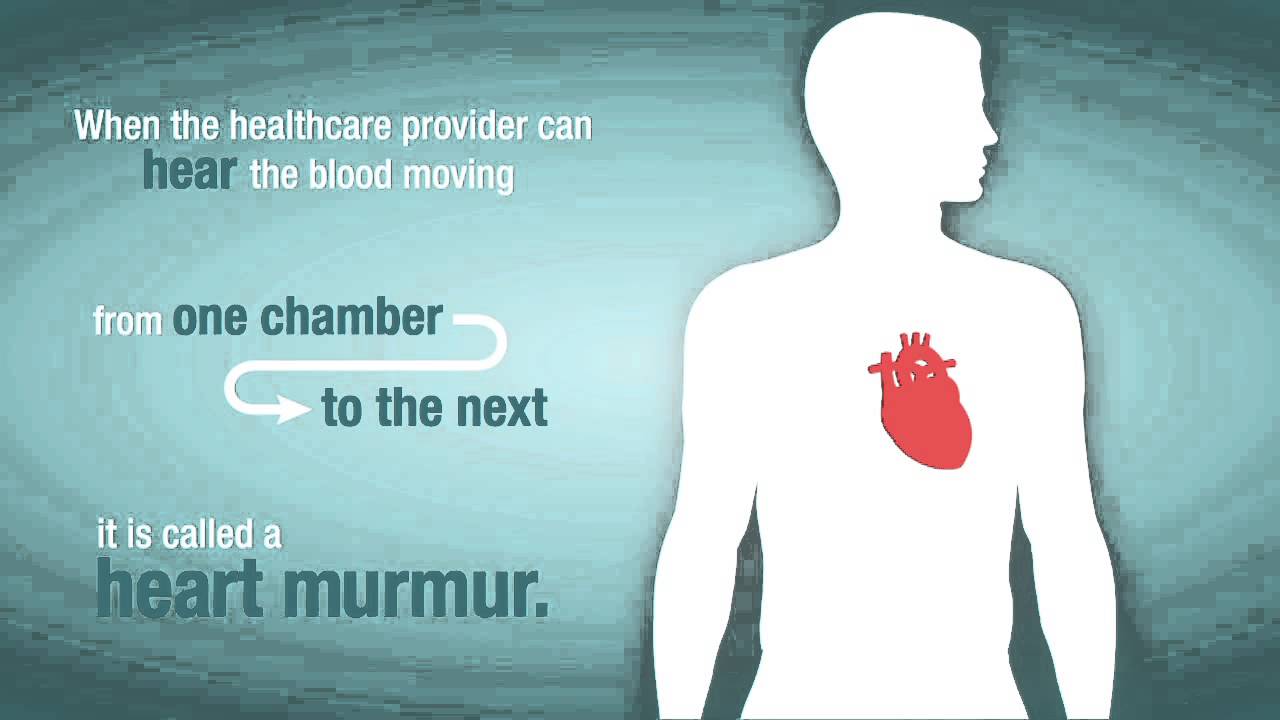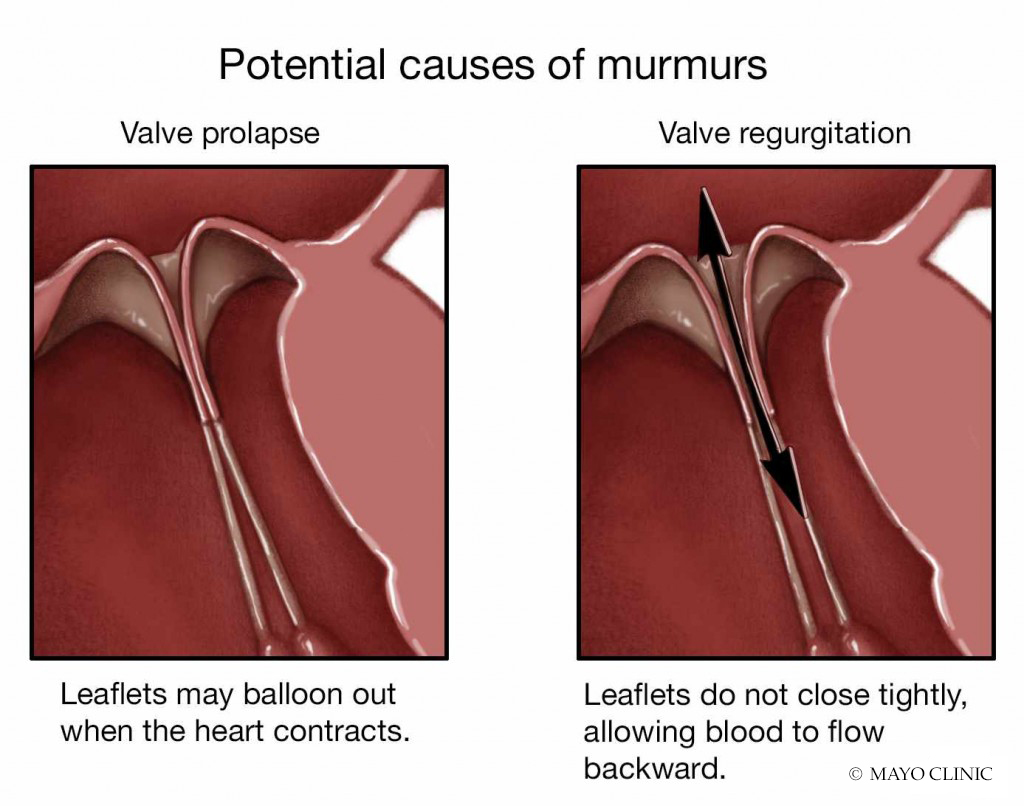Marvelous Tips About How To Tell If You Have A Heart Murmur
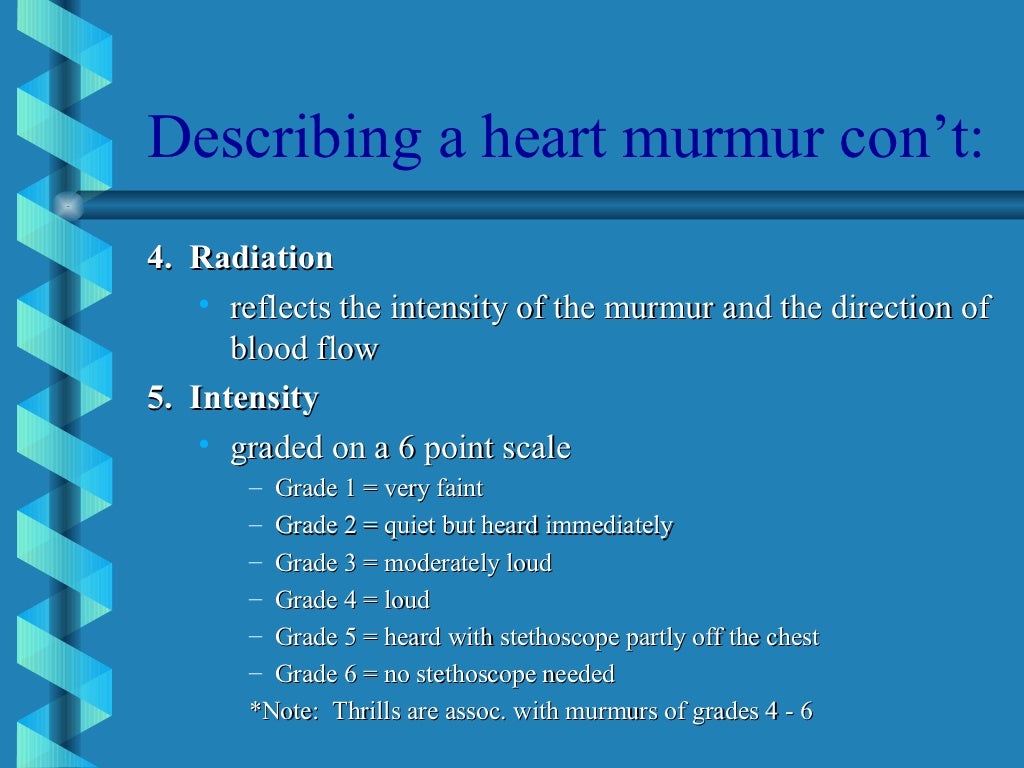
Coronary artery disease can lead to heart attack, abnormal heart rhythms, and heart failure.
How to tell if you have a heart murmur. An echocardiogram uses sound waves to create pictures of the beating heart. Clues about the cause can be based on the loudness, location and quality of the. If they think it could be an abnormal heart murmur,.
Set a timer for 60 seconds and pay attention to the. In a blood pressure reading, the. The sounds can be heard with a device.
This is the main test used to determine the cause of a heart murmur. Overview heart murmurs are sounds — such as whooshing or swishing — made by rapid, choppy (turbulent) blood flow through the heart. Also, stress drives an increase in catecholamines, hormones made in.
In adults, innocent heart murmur. There are many possible causes of heart murmurs. Heart murmurs are the swishing, whooshing, or rasping sounds during a heartbeat.
How is a heart murmur diagnosed? Doctors categorize murmurs according to what causes them: Overview heart murmurs are sounds — such as whooshing or swishing — made by rapid, choppy (turbulent) blood flow through the heart.
If you experience persistent symptoms such as chest pain, shortness of breath, unexplained fatigue, dizziness or swelling, especially in adulthood, these should. An innocent murmur can be found in children and adults. Courtesy nikita oxner under branch’s care, oxner discovered she had a condition that.
As defined by the national heart, lung, and blood institute, a heart murmur is “an unusual sound heard between heartbeats.”. These include fatigue, decreased exercise tolerance, swelling, shortness of breath, passing out or chest pains amongst other symptoms. If you are diagnosed with a heart murmur, it is important to watch for symptoms such as difficulty exercising, extreme tiredness or shortness of breath.
They affect your energy level and the desire to exercise. The loudness of the heart murmur is evaluated on a scale from 1 to 6. It is the “whooshing” or “swishing” sound that is often.
Symptoms of serious valve or congenital heart disease include shortness of breath during exercise, shortness of breath when lying flat to sleep at night, chest pain. Or it may be that a. Method 1 identifying symptoms of a heart murmur 1 check your pulse to see if you have an irregular or rapid heartbeat.
Sometimes, a murmur sounds like a humming sound, which can be faint or loud. Swelling or sudden weight gain shortness of breath chronic cough enlarged liver enlarged neck veins poor appetite and failure to grow normally (in infants) heavy. The loudest heart murmur is a 6.

